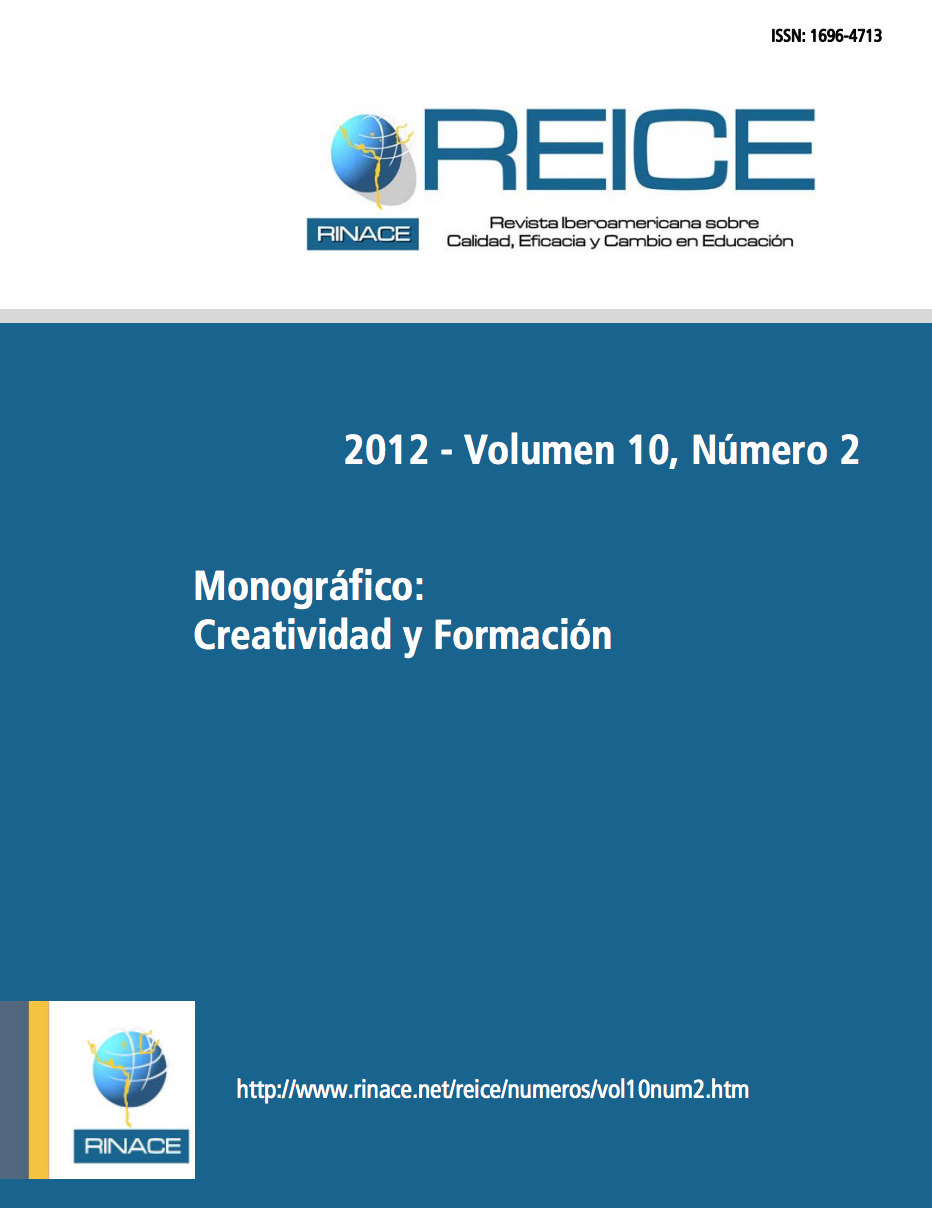Keywords:
Creativity, ICT, guidance, music, music education, e-learning.Copyright (c) 2016 REICE. Revista Iberoamericana sobre Calidad, Eficacia y Cambio en Educación

This work is licensed under a Creative Commons Attribution-NonCommercial-NoDerivatives 4.0 International License.
Abstract
Career management and planning is an aspect which requires music students to put creativity into practice. Helping students develop their creativity when exploring the wide array of possibilities that comprise the professional music world is a task where information and communication technologies can play an important role. A career guidance project developed in a music conservatoire in Madrid is described in this article. The use of ICT in this project had the aim of favouring interaction between students and professional musicians, as well as allowing students to enhance their knowledge of the professional world of music. Examples of activities are given which show the diversity of interaction modalities that ICT make possible, including interaction between professionals and students via discussion forums, e-mail, chat, audio conference and videoconference. Despite the advantages that ICT provide, the need to make a sensible use of these technologies are also mentioned, and in particular, the need to evaluate the time expenditure of all agents involved in an online learning process.
Downloads
References
Cole, J. (2005). Using Moodle. California: O’Reilly Media.
Gutiérrez Martín, A. (2003). Alfabetización digital. Algo más que ratones y teclas. Barcelona: Gedisa.
Hargreaves, R. (1998). Música y desarrollo psicológico. Barcelona: Graó.
Lago Castro, P. (2004). Ópera abierta: El arte de escuchar música. Madrid: Sanz y Torres.
Real Academia Española (2010). Diccionario de la lengua española. Madrid: Espasa Calpe.
Real Academia Española (1992). Diccionario de la lengua española. Madrid: Espasa Calpe
